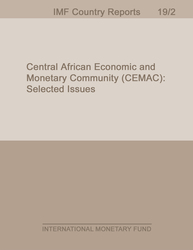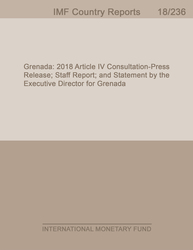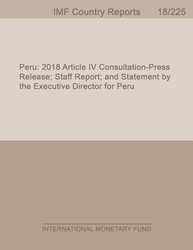
Central African Economic and Monetary Community (CEMAC): Selected Issues
The Central African Economic and Monetary Community region was severely affected by a sharp decline in commodity prices after 2014, notably the reduction in oil prices.
READ MORE...
Volume/Issue:
Volume 2019
Issue 002
Publication date: January 2019
ISBN: 9781484392843
$18.00
Add to Cart by clicking price of the language and format you'd like to purchase
Available Languages and Formats
| English | ||||
| French |
Prices in red indicate formats that are not yet available but are forthcoming.
Topics covered in this book
This title contains information about the following subjects.
Click on a subject if you would like to see other titles with the same subjects.
Exports and Imports , Public Finance , Taxation - General , ISCR , CR , CEMAC Commission , taxation , CEMAC country , GDP , country , oil revenue , CEMAC member states , fiscal consolidation effort , CEMAC directive , Anti-money laundering and combating the financing of terrorism (AML/CFT) , Corruption , Income and capital gains taxes , Value-added tax , Sub-Saharan Africa
Also of interest
Summary
This Selected Issues paper looks at some Central African Economic and Monetary Community (CEMAC) specific regional dimensions of a possible strategy to enhance governance, which would support specific reforms in this area at the country level. The paper describes the specific dimensions of governance covered in the note. The paper also analyzes governance and corruption in the areas of public financial management, anti-money laundering, and the link between the oil sector and public resources. The CEMAC regional institutions will have to play a central role to lead progress in these areas, and support member countries’ own efforts. Due to such actions result in giving a coherent framework to actions conducted at the country level, the synergic dimension can spur a virtuous circle, key to earn the benefit of an economic and monetary union. The success of the regional strategy that CEMAC member countries and regional institutions are implementing to exit the severe crisis they are facing depends critically on creating the conditions for laying the ground for a diversified economy, within a well-functioning regional market and an environment that provides opportunities for all and where public resources are geared to most productive use.
Copyright © 2010 - 2026
Powered by:
AIDC



